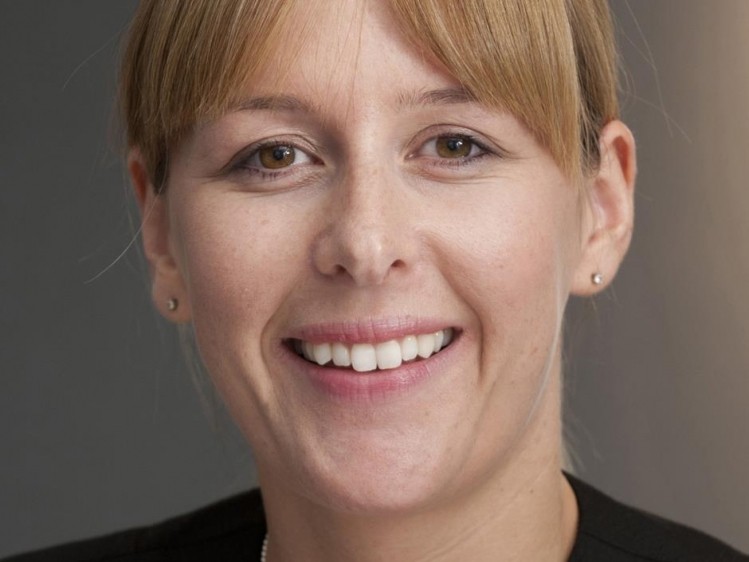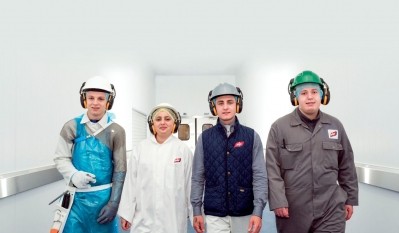How to tackle lack of women in meat industry

The data has been revealed by an independent report entitled 'Inspire, Network, Grow: Gender Representation in the Meat Sector 2020', commissioned by Meat Business Women and published today (13 October). The study also found women in the meat industry are under-represented at every level above junior positions, holding just 14% of board-level director roles and 5% of chief executive roles.
The research indicated women were better represented in some roles than others, said Ryan, such as marketing, HR, finance, NPD, quality and research and development. However, those roles were often not traditional routes to board level posts.
Addressing what could be done, Meat Business Women founder Laura Ryan told Food Manufacture: "Businesses should map their data and identify the gaps themselves. Some don't really know their data when they get down to each discipline. So they should map it and put development plans in place and support some of those senior women that are maybe not in a traditional operational route to get to the top.
Ryan said one thing that seems to put women off applying for roles in the sector was a lack of role models: "Females are seeing there's not role models in that route and [saying] that's maybe not for me."
Lack of mentors
Whereas men often had strong networks within the industry, women often struggled from a lack of mentors, she said. Demand for mentors was the number one request women at Meat Business Women events raised. "That often comes from organisations that do have mentoring schemes, but folks want to be able to speak to somebody who is outside maybe their organisation but understands their language."
Meat Business Women had a global community, so could link people up with industry mentors even in other countries, said Ryan. Having launched a new website, the organisation planned to launch a mentoring portal within the next two weeks enabling women to communicate internationally even on a peer-to-peer level.
In addition, the sector could be more flexible, making it easier for women, who still today often occupy primary caregiver roles at home, to juggle professional domestic responsibilities. "They're not necessarily female focused - long hours, pre-COVID travelling all over the place. It's a very different discipline.
COVID an opportunity
"Within the meat industry there's this real culture of working long hours and if you aren't working long hours, 'you're not working hard enough'. We should challenge the culture of long hours and work differently and COVID actually being an opportunity: you don't have to be sat at your desk, at the factory or on the phone in the car. You can work differently.
"Some major processors over COVID that haven't really done any home working have now got really top of the range IT and you're speaking to their CEOs on [Microsoft] Teams or Zoom. I think COVID has given some organisations an opportunity to fast-track some of their digital solutions."
Ryan acknowledged that was more difficult for operational roles, but others could be organised more flexibly.
The perception of the industry was also a major issue, she said. "The meat industry generally isn't great at getting out there and championing what a great sector it is to work in.
Image issue
"There's a general image issue about women who have no agricultural background in the industry to actually see what it is and see it as a positive and see all this great stuff exists. We're just not getting talent in because people don't see what's available."
While Meat Business Women could support a national recruitment campaign along those lines, the industry needed to take the lead in launching such an initiative, said Ryan. "We can't do it alone. Industry needs to act and act now. This isn't just a tick box. If we don't get that pipeline of great talent into our sector, [workforce] sustainability is going to be really challenged."
One positive sign was that suppliers were facing increasing pressure from customers to address gender equality. "Retailers in the UK have now signed up to UN Women's Empowerment Principles, which is not only going to be, 'what's your gender pay reporting?' It's going to be, 'what is it you're doing to get more women into your organisation? How are you mentoring them? How are you championing them? How are you moving them to the top?'"
Benefits from employing more women
Ryan referenced research suggesting companies that have a steady stream of women rising to the top were more profitable, more sustainable and more agile in the market.
Meat Business Women has already launched a formal corporate membership package and plans to offer individual membership in the next couple of weeks. It has brought ABP, Cranswick and Moy Park, Pilgrim's Pride, Dunbia, Linden Foods and Hilton Food Group on board as strategic partners.
The Meat Business Women report was based on data collated from focus groups in the UK, Ireland, the US, New Zealand and Australia. More insights can be viewed in the full report.
















